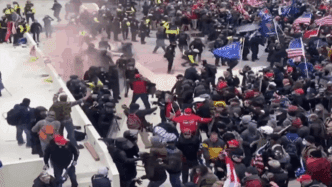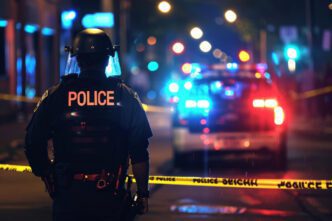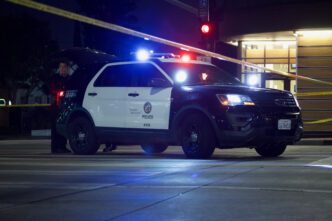As legal proceedings related to the January 6th Capitol riot continue, uncertainty looms over the future of these cases due to political developments and potential presidential actions.
The riots at the U.S. Capitol on January 6th, 2021, led to the largest prosecution effort in the history of the Department of Justice, with extensive evidence leading to hundreds of convictions. However, the recent political changes, including former President Donald Trump’s return to political prominence and his public statements about the alleged rioters, have cast uncertainty on ongoing prosecutions.
Over the past four years, more than 1,500 individuals across the United States have faced federal charges related to the events of January 6th. While many faced misdemeanor charges for non-violent trespassing, others were charged with more serious offenses, such as assaults on law enforcement officers. Among those convicted were leaders of extremist groups like the Oath Keepers and the Proud Boys, who were found guilty of seditious conspiracy in their efforts to subvert the transfer of power.
Judicial outcomes have varied greatly, with approximately 250 individuals convicted in trials, and over 1,020 opting for guilty pleas. The sentences imposed include jail time, probation, and community service, with some prominent figures receiving lengthy prison terms. Notably, Enrique Tarrio, previously the national chairman of the Proud Boys, received a 22-year sentence for seditious conspiracy.
New arrests continue, with over 100 trials scheduled for 2025. Despite former President Trump’s indication of potential pardons, few have successfully delayed proceedings. U.S. District Judge Royce Lamberth emphasized that the theoretical possibility of pardons holds little sway over ongoing legal processes, highlighting the judicial independence in these matters.
The scope of Trump’s promised pardons remains uncertain. While he has expressed intentions to assess cases individually, it is unclear how his decisions will unfold. His rhetoric on the campaign trail has diminished the severity of the violence, yet he has also noted “some exceptions” for potential pardons without specifying who constitutes such exceptions. This ambiguity leaves both observers and involved parties in a state of anticipation about future legal resolutions.
Judges have consistently rebuked efforts to recast the convicted individuals as political prisoners. Chief among the judicial voices, District Judge Carl Nichols expressed dismay over the notion of mass pardons, viewing them as potentially undermining the judiciary’s role and the historical record of that day. Similarly, Judge Amit Mehta remarked on the troubling implications of pardoning individuals convicted of insurrectionist actions, reflecting broader concerns about the precedent such actions may set for democratic governance.
The ongoing legal proceedings from the January 6th Capitol riot reflect not only a critical moment in U.S. history but also a test of the judiciary’s role in upholding justice amid political influences. As developments continue, the outcomes of these trials and the actions of political leaders will significantly shape the narrative and implications of that pivotal day.
Source: Wsvn







